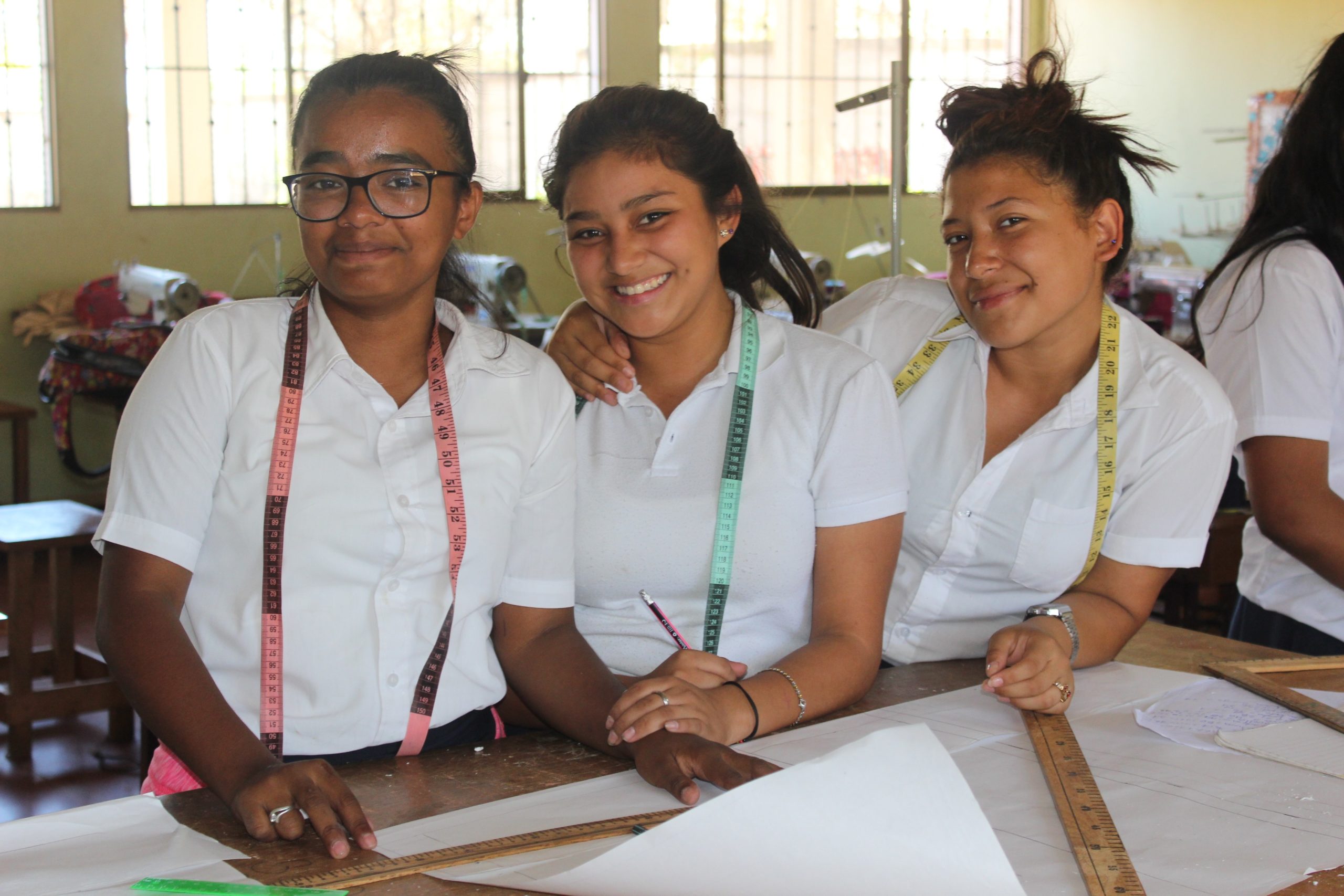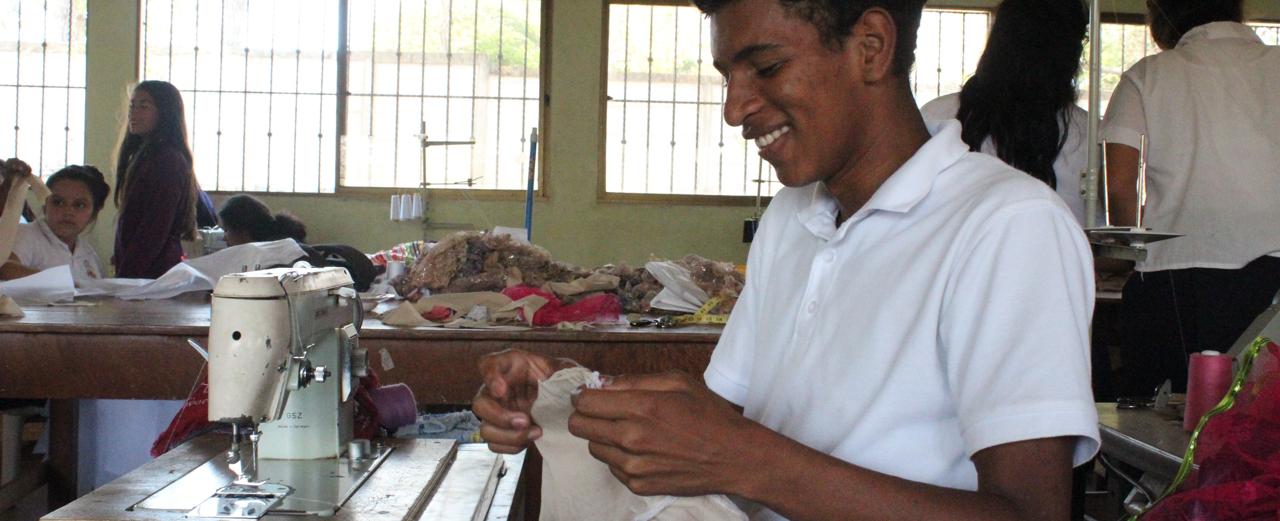 Vocational training for a better future
Vocational training for a better future
Combatting rural depopulation in Honduras
How do you design and make a shoe? How does electricity get to the socket? What do you have to consider when welding? After completing the vocational preparation programme in the "Talleres" (Spanish for workshops), young people like Teodoro can easily answer these and other questions. This is not to be taken for granted. For although a good education is highly valued in Honduras, the vast majority of children leave school after year 6 with a low level of skills and no prospect of further schooling or vocational training. Teodoro decided to take part in the carpentry programme in the Talleres and is now a professional in his field, so that he can also help out younger pupils if they are at a loss. The Talleres offered him a future that would otherwise have been unthinkable for an orphan like him. Teodoro's big dream is to become an engineer.
Necessity
Vocational preparation for young people from poor backgrounds in Honduras.
Activity
Young people attend vocational preparation programmes and acquire basic skills in a recognised craft in the "Talleres".
Countable effort
Number of minutes of vocational preparation programming carried out in the different Talleres.
Result
It is expected that approximately 70 young people will be able to obtain a nationally recognised qualification and then start their working lives.
Systemic effect
Improved level of vocational training and better prospects for young people in rural Honduras.
Background
Honduras is the second poorest country in Central America and offers few opportunities for its relatively young population. Up to 60 per cent of the population live in poverty, with unemployment at over 40 per cent. Access to education is very limited in rural areas, especially after six years of primary school. There are many reasons for the difficult living conditions. On the one hand, there is criticism of the years of privatisation of the public infrastructure. The elites and large companies in the energy and mining sectors have been the main beneficiaries. In addition, the government has been accused of corruption and electoral fraud for many years. Trade agreements ensure that the market in Honduras is flooded with subsidised products from North America. Products such as maize, rice and beans, which are also grown in Honduras, are usually imported, as this is much cheaper. The victims are farmers who are no longer able to sell their products (Deutschlandfunk, 2019). This results in poverty and migration to the capital region. Families often break apart due to these circumstances, and many children are left to fend for themselves. In addition, hundreds of children and young people set off every year for the US, on one of the most dangerous migration routes in the world, in search of a supposedly better future. Rural communities, in particular, suffer from a very low level of education and mass emigration. Precarious conditions locally have become entrenched.
The good deed
Your donation today will be used to help prepare young people, particularly those from poor rural families, for a career. In this way, they will be able to fundamentally improve their life prospects. The vocational preparation project enables disadvantaged young people to gain practical experience in various trades during a 3-year programme. The selection from seven areas - from cosmetics to welding - helps young people to develop their individual potential as they are guided by certified teachers. The programme ends with a nationally recognised final exam. This is an important prerequisite for further qualification as a trained specialist. Parallel to this, all participants attend the neighbouring secondary school. The local community and economy also benefit from the training the young people received. In the medium to long term, the program improves the availability of skilled workers and curbs emigration.

AboutHonduras
Tegucigalpa
9,476,120
US$ 4,258
Placed 132nd out of 189
Honduras is a very young country: More than 50 per cent of its inhabitants are under the age of 24. At the same time, Honduras can look back on a rich history: The Mayan ruins of Copán have been a UNESCO World Heritage Site since 1980.
About the organization and further information
PEN PAPER PEACE Association
Website
https://www.pen-paper-peace.org/english

Further information and source
- Deutsche Gesellschaft für Internationale Zusammenarbeit, 2020. Länderporträt Honduras, Bonn/Eschborn.
- nph Honduras, 14.09.2017. Un Pequeño, Dos carreras: Talleres Vocacionales de NPH, Cuernavaca.
- Politico, 07.06.2019. Why people flee Honduras, Arlington.
- Reischke, M., 09.03.2019. Krise in Honduras: Die zweifelhafte Rolle der USA, Deutschlandfunk, Köln.
- UNICEF Child Alert, 2018. Uprooted in Central America and Mexico. Migrant and refugee children face a vicious cycle of hardship and danger, New York.




